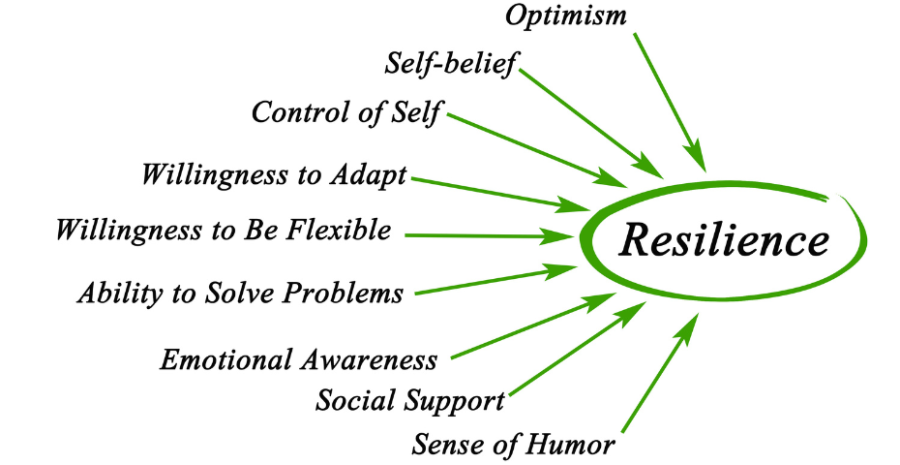
Essential Strategies: How to Sidestep Common Startup Pitfalls.

Introduction:
Embarking on the entrepreneurial journey is an exhilarating endeavor, but it's fraught with potential pitfalls that can challenge even the most resilient visionaries. In this guide, we delve into the indispensable realm of "Essential Strategies: How to Sidestep Common Startup Pitfalls," a comprehensive blueprint for emerging entrepreneurs. From the inception of a groundbreaking idea to the execution phase, this resource serves as a beacon, illuminating the treacherous paths that can hinder success.
Navigating the turbulent waters of startup ventures requires foresight and strategic acumen. As we explore each chapter, we will dissect common pitfalls, providing insightful strategies to circumvent and overcome them. Whether it's financial missteps, leadership challenges, or market uncertainties, this guide equips you with the knowledge and tools needed to not just survive but thrive in the dynamic world of startups.
Through real-world examples, case studies, and actionable insights, we aim to empower entrepreneurs to make informed decisions and fortify their enterprises against potential setbacks. Consider this guide your compass, steering you away from pitfalls and towards a path of sustainable growth and innovation. Let's embark on this transformative journey together, ensuring that your startup not only survives but flourishes in the face of adversity.
Navigating the Startup Landscape: 12 Essential Strategies to Sidestep Common Pitfalls
1. Identify Your Market:

Before diving headfirst into your startup journey, conduct thorough market research to understand your target audience, competitors, and industry trends. This knowledge will help you make informed decisions and avoid launching into a market that isn't ready for your product or service.
Identifying your market is the cornerstone of any successful startup venture. It involves thorough research and analysis to understand the needs, preferences, and behaviors of your target audience. By segmenting the market and defining your ideal customer profile, you can tailor your products or services to meet their specific needs effectively. This not only enhances customer satisfaction but also increases the likelihood of success in a competitive landscape.
Market identification allows you to pinpoint opportunities for growth, differentiate yourself from competitors, and develop a compelling value proposition that resonates with your audience. Moreover, it lays the foundation for strategic decision-making, guiding your marketing efforts, product development initiatives, and overall business strategy. With a deep understanding of your market, you can anticipate trends, mitigate risks, and capitalize on emerging opportunities, positioning your startup for sustainable growth and long-term success.
2. Develop a Solid Business Plan:

A well-crafted business plan serves as your roadmap, outlining your goals, target market, revenue streams, and strategies for growth. It provides clarity and direction, helping you stay focused and agile amidst uncertainties. Developing a solid business plan is essential for laying the groundwork for a successful startup venture.
It serves as a comprehensive roadmap that outlines your business objectives, strategies, and tactics for achieving growth and profitability. A well-crafted business plan not only clarifies your vision but also provides a structured framework for decision-making and resource allocation. It includes detailed market analysis, competitive research, and a clear understanding of your target audience and their needs.
Moreover, a business plan articulates your unique value proposition and defines your competitive advantage, helping you stand out in the market. Additionally, it outlines your revenue model, pricing strategy, and sales projections, providing stakeholders with a realistic view of your startup's financial viability and potential return on investment. Regularly revisiting and updating your business plan ensures that you stay aligned with your goals and adaptable to changes in the business landscape, ultimately enhancing your startup's chances of long-term success.
3. Bootstrap Wisely:

While securing funding can accelerate your startup's growth, it's essential to bootstrap wisely and prioritize resource allocation. Avoid overspending on non-essential expenses and focus on investments that directly contribute to your business's success. Bootstrap wisely entails prudent management of resources to sustain and grow your startup without relying heavily on external funding.
It involves prioritizing essential expenses while being frugal with discretionary spending, ensuring optimal utilization of available capital. By maintaining tight control over costs and conserving cash flow, startups can extend their runway and weather financial uncertainties more effectively. Bootstrap strategies may include leveraging existing assets, negotiating favorable terms with suppliers, and maximizing operational efficiency.
Moreover, adopting a lean approach encourages creativity and innovation, fostering a culture of resourcefulness and resilience within the organization. However, it's crucial to strike a balance between cost-cutting measures and investing in key areas that drive value and growth. By bootstrapping wisely, startups can enhance their financial stability, minimize debt, and retain greater control over their destiny, positioning themselves for long-term sustainability and success.
4. Build a Strong Team:

Surround yourself with a talented and diverse team that shares your vision and complements your skill set. Foster a culture of collaboration, transparency, and accountability to drive innovation and overcome challenges together. Building a strong team is imperative for the success of any startup venture.
It involves assembling a group of talented individuals who share a common vision and possess complementary skills and expertise. A cohesive team fosters collaboration, creativity, and synergy, driving innovation and problem-solving. Effective team building requires clear communication, mutual respect, and a shared commitment to the company's goals and values.
By cultivating a positive work culture that encourages open dialogue and feedback, startups can empower their team members to thrive and contribute their best work. Additionally, investing in team development initiatives, such as training programs and team-building exercises, can strengthen relationships and enhance productivity.
A strong team not only accelerates the execution of business objectives but also fosters a sense of camaraderie and loyalty, contributing to the long-term success and sustainability of the startup.
5. Embrace Agility:

In the fast-paced startup environment, agility is key to survival. Be prepared to pivot your strategy, iterate on your product, and adapt to changing market dynamics based on feedback and data-driven insights. Embracing agility is essential for startups navigating the ever-evolving business landscape.
It involves cultivating a mindset of adaptability, flexibility, and responsiveness to change. By embracing agility, startups can quickly pivot their strategies, iterate on their products, and seize emerging opportunities. Agility enables startups to stay ahead of the curve, anticipate market shifts, and outmaneuver competitors. Moreover, fostering a culture of experimentation and learning encourages innovation and continuous improvement within the organization.
Embracing agility also entails empowering employees to make autonomous decisions and take calculated risks, fostering a sense of ownership and accountability. By embracing agility as a core value, startups can navigate uncertainty with confidence and resilience, positioning themselves for sustained growth and success in a dynamic and unpredictable business environment.
6. Manage Cash Flow Effectively:

Cash flow management is critical for startup success. Monitor your expenses, streamline processes, and negotiate favorable terms with suppliers to ensure you have sufficient runway to weather any financial storms. Managing cash flow effectively is paramount for the financial health and sustainability of any startup.
It involves maintaining a delicate balance between incoming revenue and outgoing expenses to ensure sufficient liquidity to cover operational costs and investments. Startups must meticulously monitor cash flow by tracking inflows from sales, investments, and financing activities, as well as outflows for salaries, rent, utilities, and other expenses.
By creating detailed cash flow forecasts and budgets, startups can anticipate potential cash shortages and proactively implement strategies to mitigate risks. Additionally, negotiating favorable terms with suppliers and customers, such as extended payment terms or early payment discounts, can help optimize cash flow.
Furthermore, maintaining a cash reserve or line of credit provides a safety net during lean times or unforeseen circumstances. Effective cash flow management requires discipline, foresight, and the ability to make tough decisions, such as delaying non-essential expenditures or renegotiating contracts.
By prioritizing cash flow optimization, startups can improve financial stability, reduce reliance on external funding, and position themselves for long-term success and growth.
7. Prioritize Customer Feedback:

Your customers are your greatest asset. Actively seek feedback, listen to their needs and pain points, and iterate on your product or service to deliver maximum value. Building a loyal customer base is essential for long-term sustainability. Prioritizing customer feedback is a cornerstone of successful startup strategy.
It involves actively seeking, listening to, and implementing insights from customers to enhance products, services, and overall customer experience. By prioritizing customer feedback, startups can gain valuable insights into customer needs, preferences, pain points, and areas for improvement. This customer-centric approach fosters stronger relationships, builds brand loyalty, and drives long-term growth.
Implementing feedback loops, such as surveys, interviews, and feedback forms, allows startups to gather actionable data and identify trends. Moreover, transparent communication and responsiveness to customer concerns demonstrate a commitment to customer satisfaction and continuous improvement. Prioritizing customer feedback not only helps startups stay ahead of competitors but also fosters innovation and drives product innovation in line with market demand.
Additionally, engaging customers as partners in the development process creates a sense of ownership and fosters a loyal customer base. Ultimately, startups that prioritize customer feedback are better positioned to adapt to evolving market dynamics, meet customer expectations, and achieve sustainable success in the long run.
8. Cultivate Resilience:

Startup life is full of ups and downs. Cultivate resilience by embracing failure as a learning opportunity, staying optimistic in the face of adversity, and maintaining a growth mindset that fuels continuous improvement. Cultivating resilience is crucial for startups navigating the unpredictable terrain of entrepreneurship.
It involves developing the mental fortitude to bounce back from setbacks, adapt to challenges, and persevere in the face of adversity. Resilient entrepreneurs view failures as learning opportunities and setbacks as temporary obstacles on the path to success. By maintaining a positive mindset and focusing on solutions rather than dwelling on problems, startups can weather storms and emerge stronger than before.
Moreover, building a support network of mentors, advisors, and fellow entrepreneurs provides invaluable guidance and encouragement during tough times. Resilience is not just about bouncing back; it's also about thriving in the face of uncertainty and embracing change as a catalyst for growth. By cultivating resilience as a core value, startups can foster a culture of innovation, perseverance, and tenacity that empowers teams to overcome challenges and achieve their goals.
9. Stay Compliant:

Navigating regulatory requirements and legal obligations can be daunting for startups. Stay informed about relevant laws and regulations in your industry, seek legal counsel when needed, and prioritize compliance to avoid costly penalties and setbacks.
Staying compliant with relevant laws and regulations is paramount for the long-term success and sustainability of startups. It involves staying informed about legal requirements, industry standards, and regulatory changes that impact business operations. Startups must adhere to regulations governing areas such as taxation, data protection, intellectual property, and labor practices to avoid legal repercussions and reputational damage.
Implementing robust compliance processes and controls ensures that startups operate ethically and responsibly, safeguarding the interests of customers, employees, and stakeholders. Additionally, seeking legal counsel and staying up-to-date with compliance best practices help startups mitigate risks and proactively address potential issues.
By prioritizing compliance, startups build trust and credibility with customers, investors, and regulatory authorities, fostering a solid foundation for growth and expansion. Ultimately, startups that prioritize compliance demonstrate their commitment to integrity and accountability, positioning themselves for long-term success in an increasingly regulated business environment.
10. Focus on Marketing and Branding:

Effective marketing and branding are essential for building brand awareness, attracting customers, and differentiating your startup from competitors. Invest in strategic marketing initiatives that resonate with your target audience and convey your unique value proposition.
Focusing on marketing and branding is essential for startups to establish a strong presence in the market and differentiate themselves from competitors. It involves crafting a compelling brand identity that resonates with the target audience and communicates the unique value proposition of the startup.
Startups must invest in strategic marketing initiatives across various channels, including digital, social media, content marketing, and traditional advertising, to reach and engage potential customers effectively. By conducting market research and understanding consumer behavior, startups can tailor their marketing strategies to address the specific needs and preferences of their target audience.
Moreover, building brand awareness and credibility through consistent messaging, storytelling, and visual branding enhances customer trust and loyalty. Implementing analytics and tracking tools allows startups to measure the effectiveness of their marketing efforts and optimize campaigns for maximum impact and ROI.
Additionally, fostering community engagement and building relationships with influencers, industry experts, and media outlets can amplify the reach and visibility of the startup's brand. Startups must also prioritize customer relationship management (CRM) to nurture leads, drive conversions, and foster long-term customer loyalty.
By delivering exceptional customer experiences and soliciting feedback, startups can continuously refine their marketing and branding strategies to stay relevant and competitive in the market. Investing in professional design, copywriting, and photography services ensures that the startup's brand assets are visually appealing and cohesive across all touchpoints.
Ultimately, startups that focus on marketing and branding not only attract and retain customers but also build a strong brand reputation and equity that drives sustainable growth and success in the long run.
11. Monitor Key Metrics:

Track key performance indicators (KPIs) relevant to your business goals, such as customer acquisition cost, retention rate, and revenue growth. Regularly analyze these metrics to assess your startup's performance and identify areas for improvement.
Focusing on monitoring key metrics is essential for startups to track their progress, identify areas of improvement, and make informed strategic decisions. By defining and regularly analyzing key performance indicators (KPIs) relevant to their business objectives, startups can gain valuable insights into their performance and the effectiveness of their strategies.
These metrics may include customer acquisition cost, retention rate, revenue growth, conversion rates, and customer lifetime value. By monitoring key metrics, startups can identify trends, spot potential issues early, and pivot their strategies accordingly to optimize outcomes. Implementing data analytics and reporting tools enables startups to collect and analyze data in real-time, empowering them to make data-driven decisions and adapt quickly to changing market conditions.
Moreover, benchmarking against industry standards and competitors provides startups with valuable context and insights into their competitive position. By focusing on monitoring key metrics, startups can measure progress towards their goals, allocate resources effectively, and drive continuous improvement across all areas of the business.
12. Seek Mentorship and Networking Opportunities:

Surround yourself with mentors, advisors, and fellow entrepreneurs who can provide guidance, support, and valuable connections. Networking within your industry can open doors to new opportunities and partnerships that accelerate your startup's growth journey.
Seeking mentorship and networking opportunities is invaluable for startups seeking guidance, support, and connections to propel their growth journey. Engaging with experienced mentors and advisors provides startups with access to valuable insights, expertise, and perspective that can help navigate challenges and avoid common pitfalls.
By tapping into the knowledge and networks of mentors, startups can accelerate their learning curve, make informed decisions, and gain confidence in their abilities. Moreover, networking with fellow entrepreneurs and industry professionals opens doors to new opportunities, partnerships, and collaborations. Attending industry events, workshops, and conferences allows startups to expand their network, build relationships, and stay abreast of emerging trends and best practices.
Additionally, joining entrepreneurial communities and online forums provides a platform for sharing experiences, seeking advice, and receiving feedback from peers. By actively seeking mentorship and networking opportunities, startups can leverage the collective wisdom and support of the entrepreneurial ecosystem to overcome challenges and achieve their goals.
.png)
Conclusion:
The journey of entrepreneurship is an exhilarating yet challenging endeavor, fraught with potential pitfalls that can derail even the most promising startups. However, armed with the essential strategies outlined in this guide, entrepreneurs can navigate the treacherous terrain of startup ventures with confidence and resilience.
By identifying their market, developing a solid business plan, and bootstrapping wisely, startups can lay a strong foundation for success. Building a strong team, embracing agility, and prioritizing customer feedback are crucial for staying adaptable and customer-focused in a rapidly changing landscape.
Moreover, effective cash flow management, compliance with regulations, and a focus on marketing and branding are essential for sustaining growth and mitigating risks. By monitoring key metrics, seeking mentorship, and networking with peers, startups can continuously refine their strategies and position themselves for long-term success.
Ultimately, success in entrepreneurship is not just about sidestepping pitfalls, but about embracing challenges, learning from failures, and persevering with determination and resilience. With the right mindset, strategies, and support network, every startup has the potential to overcome obstacles and thrive in the competitive world of business.
By implementing these essential strategies, aspiring entrepreneurs can navigate the complexities of the startup landscape with confidence and resilience, positioning their ventures for long-term success and sustainability.
.jpg)
About: Andries vanTonder
Over 40 years selfemployed
He is a Serial Entrepreneur, an Enthusiastic supporter of Blockchain Technology and a Cryptocurrency Investor.
Connet with me: Markethive Profile Page | My Twitter Account | My Instagram Acount | and my Facebook Profile.
